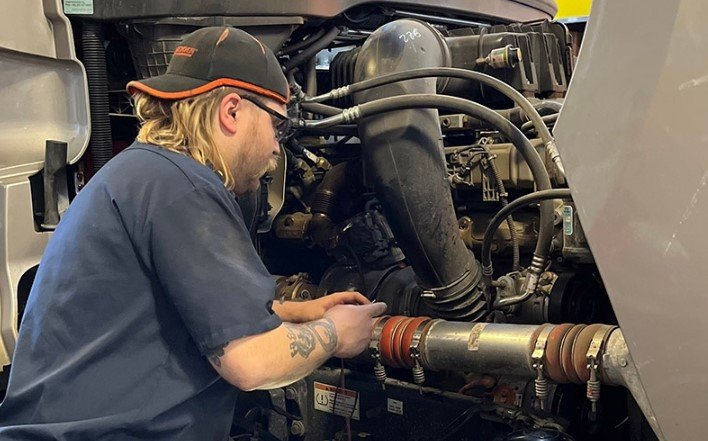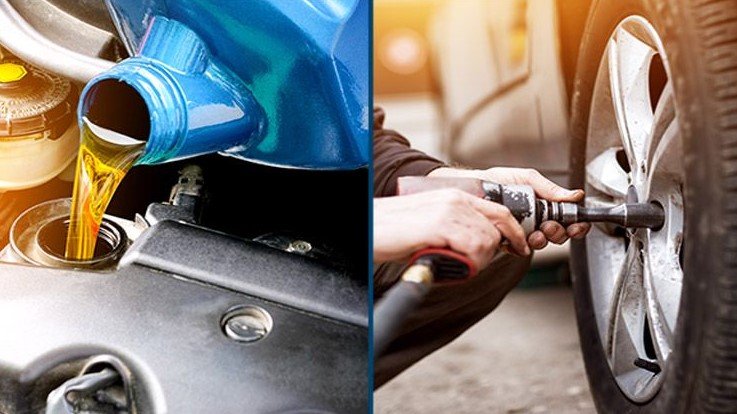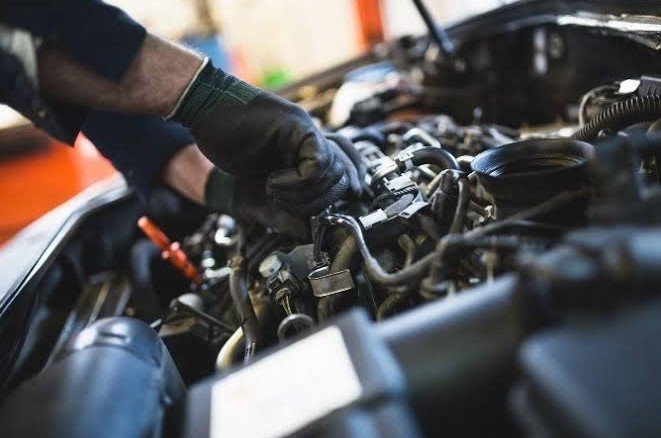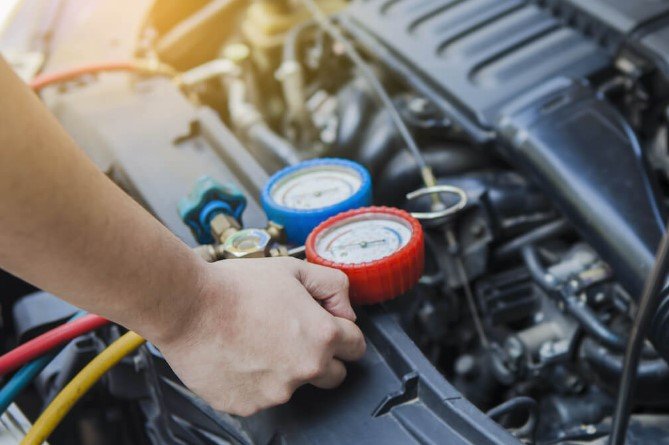
Diesel Mechanic: Navigating the Heart of Engines

If you have a penchant for fixing things, an eye for detail, and a passion for machinery, then stepping into the world of diesel mechanics might just be your calling. From diagnosing engine problems to performing intricate repairs, diesel mechanics play a crucial role in keeping vehicles and machinery running smoothly. In this comprehensive guide, we’ll explore the ins and outs of this dynamic profession, from the requisite skills to the rewarding career opportunities it offers.
Introduction to Diesel Mechanics
Diesel mechanics are the unsung heroes behind the scenes, ensuring that diesel engines operate efficiently and effectively. Whether it’s a heavy-duty truck, a construction vehicle, or a marine vessel, diesel engines power a wide array of machinery across various industries. The expertise of diesel mechanics is indispensable in maintaining and repairing these engines, keeping them in optimal condition.
Skills Required for Diesel Mechanics
Becoming a proficient diesel mechanic requires a diverse skill set. Technical prowess is paramount, as mechanics must possess a deep understanding of engine components, systems, and troubleshooting techniques. Moreover, problem-solving abilities are essential, as diesel mechanics often encounter complex issues that require innovative solutions. Attention to detail is another crucial trait, as even minor oversights can have significant ramifications for engine performance.
Educational Requirements
While a high school diploma or equivalent is typically the minimum requirement for entry into the field, many aspiring diesel mechanics opt for vocational training programs offered by technical schools or community colleges. These programs provide hands-on experience and theoretical knowledge essential for success in the field. Additionally, obtaining certification from organizations such as the National Institute for Automotive Service Excellence (ASE) can enhance job prospects and credibility within the industry.
Job Duties and Responsibilities
The responsibilities of a diesel mechanic encompass a broad spectrum of tasks, ranging from routine maintenance to complex repairs. Mechanics are tasked with diagnosing engine problems through the use of diagnostic equipment and conducting thorough inspections. Once the issue is identified, they employ their expertise to perform repairs, replace faulty components, and ensure that the engine operates optimally.
Work Environment
Diesel mechanics can be found working in various settings, including repair shops, dealerships, and fleet maintenance facilities. They may also be required to work in outdoor environments, such as construction sites or roadside locations. Given the nature of the work, diesel mechanics must adhere to safety protocols and precautions to mitigate risks associated with working with heavy machinery and hazardous materials.
Career Opportunities
The demand for skilled diesel mechanics remains strong, with ample opportunities for employment in industries such as transportation, construction, agriculture, and logistics. As diesel engines continue to power a significant portion of the global economy, the need for qualified mechanics is expected to persist. Moreover, experienced mechanics may advance to supervisory or managerial roles, overseeing teams of technicians and leading maintenance operations.
Challenges and Rewards
While the field of diesel mechanics offers rewarding career prospects, it also presents its fair share of challenges. Mechanics often work under tight deadlines, tasked with resolving issues promptly to minimize downtime for vehicles and machinery. Additionally, the job can be physically demanding, requiring mechanics to work in confined spaces and adverse conditions. However, the satisfaction of troubleshooting and fixing complex problems, coupled with the opportunity to work with cutting-edge technology, makes the profession inherently rewarding.
Technology and Tools Used
Advancements in technology have revolutionized the field of diesel mechanics, with diagnostic equipment and computer software playing an integral role in identifying and rectifying engine problems. Mechanics utilize a variety of hand and power tools to perform repairs, from wrenches and sockets to diagnostic scanners and multimeters. Familiarity with these tools and equipment is essential for effectively servicing diesel engines.
Industry Trends and Innovations
The landscape of diesel engine technology is constantly evolving, driven by the need for increased efficiency and reduced emissions. Innovations such as clean diesel technology and hybrid powertrains are shaping the future of the industry, offering more sustainable alternatives to traditional diesel engines. As environmental regulations become more stringent, diesel mechanics must stay abreast of these developments and adapt their skills accordingly.
Salary and Job Outlook
The median annual salary for diesel mechanics varies depending on factors such as experience, location, and industry specialization. According to the Bureau of Labor Statistics, the median pay for diesel service technicians and mechanics was $49,150 per year as of May 2020. With the continued reliance on diesel-powered vehicles and machinery, the job outlook for diesel mechanics remains favorable, with steady growth projected in the coming years.
Training and Continued Education
Continuous learning is essential for diesel mechanics to stay current with advancements in technology and industry best practices. Many employers offer ongoing training programs to support professional development and enhance skills. Additionally, obtaining advanced certifications in specialized areas, such as electronic systems or emissions control, can broaden career opportunities and increase earning potential.
Importance of Safety
Safety is paramount in the field of diesel mechanics, given the inherent risks associated with working on heavy machinery and equipment. Mechanics must adhere to strict safety protocols and procedures to prevent accidents and injuries. This includes wearing appropriate personal protective equipment (PPE), following lockout/tagout procedures, and maintaining a clean and organized work environment.
Customer Service Skills
In addition to technical proficiency, diesel mechanics must possess strong customer service skills. Interacting with clients in a professional and courteous manner is essential for building trust and fostering positive relationships. Effective communication skills are also crucial for explaining repair procedures and addressing any concerns or questions the customer may have.
Common Challenges Faced
Despite their expertise, diesel mechanics encounter various challenges in their day-to-day work. Time constraints can pose a significant hurdle, particularly when tasked with diagnosing and repairing complex issues under tight deadlines. Additionally, some repairs may require specialized knowledge or access to proprietary information, necessitating collaboration with manufacturers or industry experts.
In conclusion, diesel mechanics play a vital role in ensuring the smooth operation of diesel engines across diverse industries. With a combination of technical expertise, problem-solving skills, and a commitment to safety, these professionals keep the engines of the global economy running smoothly. While the job presents its share of challenges, the rewards of making a tangible impact and keeping essential machinery in top condition make it a fulfilling career choice.
FAQs (Frequently Asked Questions)
- What are the typical work hours for diesel mechanics?
- Diesel mechanics often work full-time schedules, which may include evenings, weekends, and overtime, especially during peak seasons or when responding to emergencies.
- Is prior experience required to become a diesel mechanic?
- While prior experience can be beneficial, many entry-level positions offer on-the-job training and opportunities for career advancement.
- Are there opportunities for specialization within the field of diesel mechanics?
- Yes, diesel mechanics can specialize in various areas, such as heavy equipment, marine engines, or electronic systems, by obtaining advanced certifications and gaining specialized experience.
- What are some common safety precautions for diesel mechanics?
- Common safety precautions include wearing appropriate PPE, following lockout/tagout procedures, and conducting regular inspections of tools and equipment.
-
How can aspiring diesel mechanics enhance their skills and knowledge?
- Aspiring diesel mechanics can pursue vocational training programs, obtain industry certifications, and seek opportunities for hands-on experience through internships or apprenticeships.


